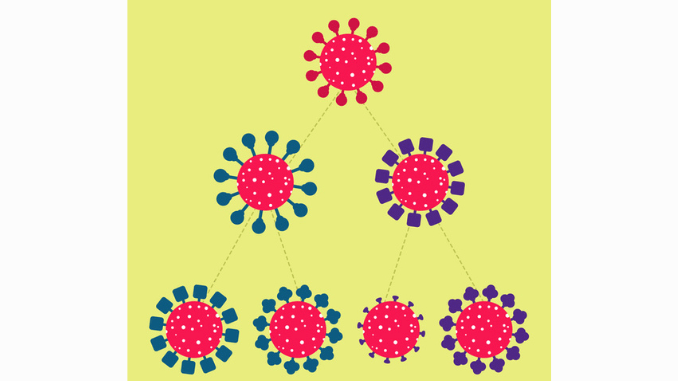As reported by The Independent, data suggests the “Juno” variant is responsible for the majority of new Covid cases in England, raising concerns about increased infections as schools resume, while experts highlight the importance of remaining vigilant against evolving variants
The JN.1 variant – named “Juno” – was responsible for 62 per cent of the Covid samples sequenced in the final week of 2023, a new report by the UK Health Security Agency (UKHSA) revealed on Thursday.
At least three hospitals have been forced to reintroduce mask-wearing in a bid to tackle growing winter pressures following the recent spike in Covid and flu admissions – as new NHS figures showed the average number of patients in hospital with Covid grew last week from an average of 3,751 to 4,046 patients a day.
Weekly admissions also increased in the seven days up to 5 January with 3,984 people admitted compared to 3,731 – a 7 per cent increase.
While the rise in hospital cases remains “very modest” compared with the outset of the pandemic, Professor Sir Andrew Pollard noted that it was driven by new variants.
But he pointed to “good news” in the data showing a drop in the percentage of positive cases sequenced by the UKHSA – which he said suggests that hospital cases will also soon start to fall.
“This is the typical pattern of variants which have mutations which allow them to spread before being halted in their tracks by growing population immunity against them as more and more people develop infection, or are vaccinated, and become resistant to infection,” he said.
“We then have a quieter period until a new variant emerges to start the cycle again.”
Describing JN.1 as “one of the most immune-evading variants to date”, Professor Lawrence Young told The Independent that it is “likely to be the lineage from which new variants will evolve”.
While early evidence suggests updated booster jabs will provide some protection from severe infection with Juno, “the problem is that most people haven’t received this booster jab and have waning immunity”, said the University of Warwick virologist.
“We can expect to see more people suffering from infections with JN.1 over the coming weeks due to more indoor mixing and the start of school and university term.
“Increased infections mean more days off work and will inevitably result in more hospitalisations.”
Prof Pollard, who chairs the Joint Committee on Vaccination and Immunisation, agreed that “cases could rise a bit again now that schools are back this week and most people have returned to work”.
In addition to Covid, “there are plenty of other viruses out there which usually rise when schools return and may [be] important too”, warned Prof Pollard, adding: “For example, influenza cases were rising in the last data from UKHSA, but fortunately RSV cases were falling.”
Professor Paul Hunter also said England appears to be “past the peak of the latest wave” and that the number of patients occupying NHS beds primarily because of Covid “also seems to have plateaued”.
Furthermore, Prof Hunter suggested that Juno’s dominance among falling infection numbers means indicates “that even this new variant of interest has passed its peak”.
But the University of East Anglia professor said he would need to wait until new data comes out to reflect the return to schools and workplaces after Christmas to be “100 per cent sure”, with data collected over the festive period tending to be more uncertain.
Despite suggestions that Juno may be starting to pass its peak in England, Prof Young warned that “the rapid rise of infections with the JN.1 variant across the world is yet another reminder that the pandemic is far from over”.
“After five years it’s far too easy to be complacent about the Covid virus and to dismiss it as like any other winter respiratory infection. This is sadly not the case,” he said.
“The virus continues to change and hasn’t settled into a predictable seasonal pattern of infection. Many people remain susceptible to severe infection and to the long-term effects of Covid. We need to remain vigilant and alert to the spread of new variants.”



Be the first to comment